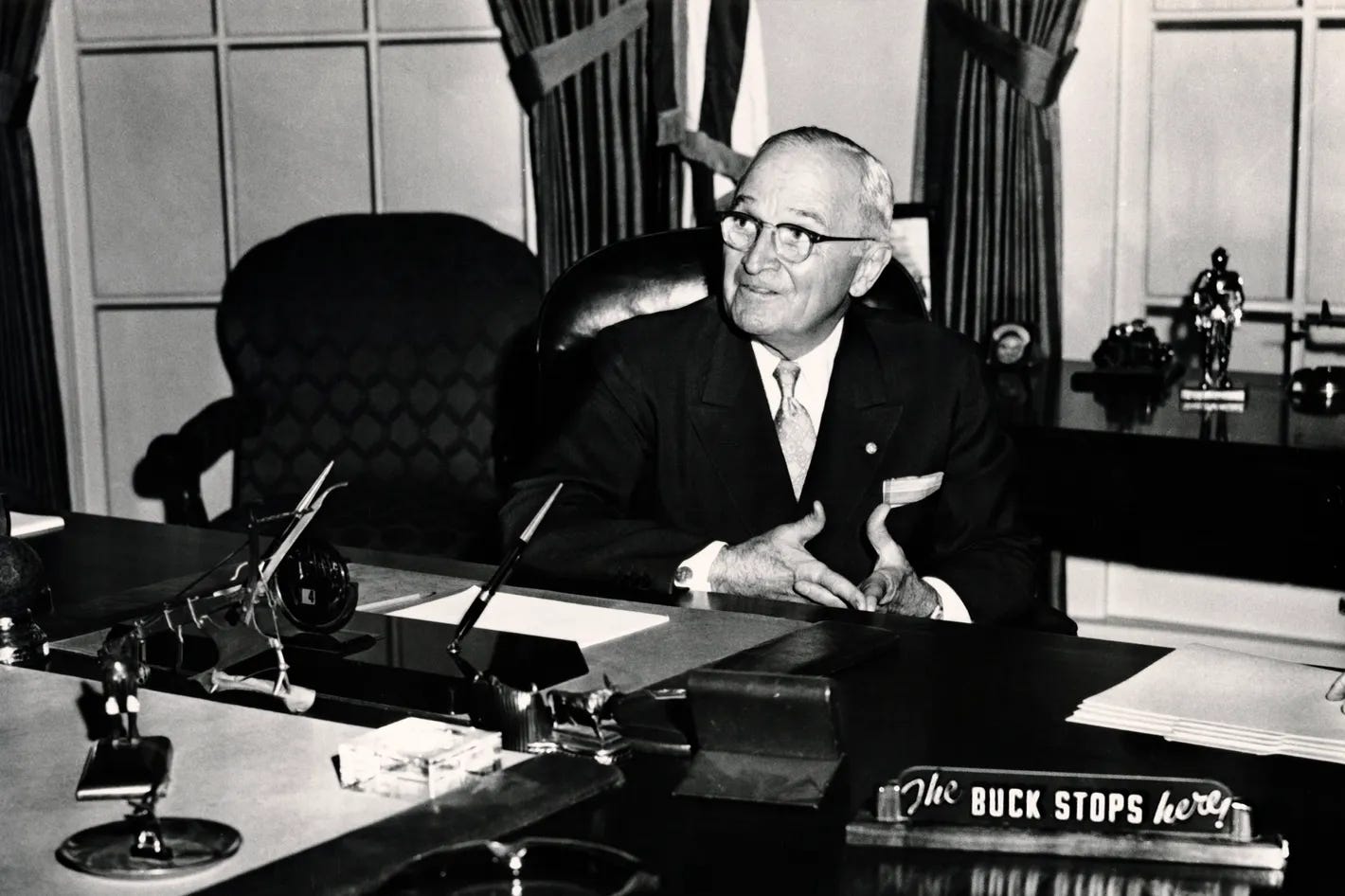Own your impact
Own your choices—or be owned by your excuses.
"You are free to do whatever you like. You need only face the consequences."
—Sheldon B. Kopp
I was so preoccupied with wanting to be an editor that I didn’t stop to think what would come along with it.
Responsibility.
Fuck.
When I moved to Los Angeles in the summer of 2009, I got my first job as a production assistant. I picked up lunch. I got coffee. I ran a 50-foot ethernet cable from our office to an AT&T signal booster I’d duct-taped to a window down the hall so the editor could make calls.
I did whatever I was told. And I was good at it.
I didn’t carry much responsibility, because I wasn’t calling the shots. If a scene in the movie wasn’t great, well, I didn’t cut it. I remember frequently standing on the sidelines watching as a frustrated director explained how the edit wasn’t working. “Phew,” I would think to myself.
I didn’t need to take the heat because I wasn’t in the kitchen. Yet.
The best editors I’ve worked with own the work they’ve done, especially when a director isn’t happy with what they’re seeing. They own the impact. They don’t make excuses. They don’t pass the buck.
Which got me thinking—what is “the buck,” anyway?
Turns out it’s old-school poker slang. The “buck” was a marker—originally a buck knife—passed around to show whose turn it was. You either held the buck and made choices, or you passed the buck, and the responsibility, to the next player.
U.S. President Harry S. Truman famously had a sign on his desk that said, “The buck stops here.”
Not sure if you’ll find that sign at Mar-a-Lago.
Every action has a reaction. Every choice has a cost. A consequence. A trade-off. Owning your impact means holding the buck and standing beside your choices, even when they didn’t go as planned. But we all know that person who’s always dodging responsibility, always generating an endless stream of excuses—some even legitimate!—for why things didn't go right.
Every excuse but the one that matters:
“That’s on me.”
They dodge not because they’re indifferent or lazy. They dodge because they’re afraid of looking silly or dumb or unprepared. It’s easier to dodge than be vulnerable. So they defend their fragile ego instead of the honest truth.
As Brené Brown says, vulnerability is not weakness—it’s the courage to show up and be seen.
“That’s on me,” is one of the most powerful things you can say out loud. And something even more powerful happens when you do.
People trust you more.
Why.
Because “that’s on me” is a signal to the tribe that you are self-aware, have confidence, and value honesty over ego. That’s magnetic. “That’s Tim’s fault” is a signal that you look in the mirror each morning and say, “They didn’t catch me today!” But you know what? They did. They do. Every time. The only person you’re fooling is yourself.
And ego can easily recover. You know what can’t?
Reputation.
“I trust them” is about as good a reputation as you can cultivate. And not only does taking responsibility conjure more trust, but it sharpens your decision-making power because now, you’re invested. Responsibility creates stake. And stake creates intention.
Seth Godin publishes a blog post every single day and has for over a decade. He says that when you know you have to write something every day (stake), you end up paying more attention to the world (intention) because… you know you have to write something every day.
It’s a self-reinforcing loop.
When you own the impact of your choices (stake), you end up making better choices (intention) because… you know you are going to own the impact of your choices.
Healthy loops like this are how we create an upward spiral versus a downward one: when you always make excuses (no stakes), you end up making worse choices (no intentions) because you know you can always make excuses.
Owning your impact is what turns preparation into reputation.
So own your impact, even if you—and I guarantee you will—fail frequently.
But we’ll get to that. For now, just own your impact.



